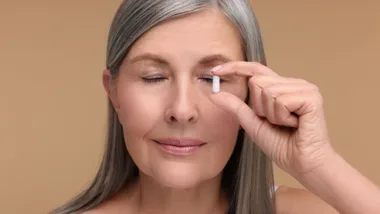Sneezing, wheezing, itchy eyes and scratchy skin, hives, the constant fear of a life-threatening exposure… this is the daily reality for people with an allergy of some sort, with the severity ranging from inconvenient to life-threatening. Given the magnitude of the problem, what should we be doing to identify, treat and even beat allergies?
The Australasian Society of Clinical Immunology and Allergy has declared the need for an allergy strategy to help improve the health and quality of life of people with allergic diseases. The strategy’s aims are to develop national, standardised and evidence-supported guidelines for the testing, prevention and management of allergies. Such a strategy would need to involve public awareness of allergic disease and include information about which health professionals are best to investigate and advise people with allergies, as well as the training of health professionals in allergy-testing protocols and the emergency management of anaphylaxis, the most severe form of allergic reaction. It would also target staff in schools, childcare and sporting facilities for allergy and anaphylaxis training.
Common types of allergy
An allergy is an overreaction of your immune system to a substance in the environment or something you eat or inhale which is harmless to a person without the allergy.
Allergies can take the form of:
Food allergy
Drug allergy
Insect allergy
Asthma
Eczema
Allergic rhinitis (hay fever)
What is anaphylaxis
Anaphylaxis is a severe allergic reaction that requires emergency medical attention. Exposure to an allergen can cause immediate and life-threatening symptoms: swollen eyes and face; hives and swelling of the tongue and throat causing breathing difficulties; and a drop in blood pressure. If you have anaphylaxis, you will be advised to carry an auto-injector containing adrenaline, and to wear a medical alert bracelet or necklace.
How to treat your allergy
If you or someone in your family has a problem with allergies, you will know the effect it can have on your life.Depending on your type and severity of allergic responses, daily nose sprays, asthma preventers and relievers, steroid creams and moisturisers, antihistamines, steroid tablets and adrenaline injectors can be involved in allergy management.
People with allergies are always advised to do anything they can to avoid known allergy triggers. However, this can be more difficult than it sounds. Environmental allergens, such as plant pollens or insect stings, can be impossible to avoid altogether unless you live in a sealed bubble. Accidental exposure is a constant risk for people with severe allergies, particularly those who have severe food allergies. Ingredients in restaurant food are not always listed on menus or disclosed by restaurant staff. There is also a wide variation in the allergy training of hospitality staff, although it has improved dramatically over the past decade with increased awareness.
How to tackle your allergy:
Talk to your doctor if you suspect you might have an allergy problem.
Arrange scientifically validated allergy testing.
If your case is more complex, you may need to be referred to an allergy specialist.
See a dietitian to help you to identify possible hidden food allergens.
Develop a personalised plan for the prevention and management of your allergies (creams, nasal sprays, asthma sprays, antihistamines and other medications, specialised
diet plan).
Be assertive. Ask questions of hospitality staff. If you are going to a function, contact the catering staff in advance so they can prepare a special meal for you.
If you are a guest in someone’s home for a meal, let them know in advance of your food allergies.
Read food labels carefully.
For severe allergies, make sure people around you know that you have an allergy.
If you have anaphylaxis, always carry your adrenaline auto-injector.
Dial 111 in case of medical emergency.











